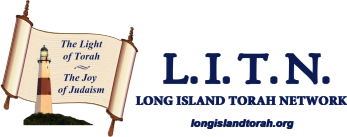The Jews have successfully defended themselves against the Amalekite attack
Moses’ father-in-law Jethro [Yisro or Yitro] hears reports of the Exodus and subsequent miracles. He travels to meet Moses in the desert, bringing along Moses’ wife and children.[1] Moses arranges a special feast in honor of his father-in-law, to whom he recounts the amazing events that have befallen the Jews.
Jethro, observing Moses’ exhausting efforts to guide and instruct the Jews, suggests that Moses appoint assistants to help shoulder the burden. Moses accepts his advice, appointing a hierarchy of leaders to govern groups of thousands, hundreds, fifties and tens.
The Jews arrive at Sinai. God sends Moses with a message to the People: “You have seen what I did to Egypt; I bore you on the wings of eagles,[2] and brought you to Me. And now, if you heed My voice and observe My covenant…you shall be a kingdom of priests and a holy People.” God offers the Jews His Torah; they respond as one, “All that God has spoken we shall fulfill!”
God commands the Jews to purify themselves in preparation for receiving the Torah. On the sixth of Sivan – fifty days after the Exodus – the Jews wake to thunder and lightning. Mount Sinai is aflame and billowing smoke, and the sound of a Shofar resounds through the camp.
God “descends” upon Mount Sinai; for the first and last time in history, an entire nation hears Him speak: “I am the Lord your God, who has delivered you from Egypt.” Thus begin the ten commandments.
The first five govern our relationship with the Creator:
The second five govern our interaction with human beings.
The Jews beg Moses to speak with them, “and let God not speak with us, lest we die!”
“Do not fear,” replies Moses. God has revealed Himself, not to terrify the Jews, but to uplift them and inspire them with awe. The rest of the Torah will be taught by God to Moses, who will communicate it to the people. Moses enters the thick cloud covering the mountaintop; he will spend forty days in Heaven, studying the rest of the Torah.
[1] Moses had left his family in Midian, not wishing to expose them to the suffering of the enslaved Jews.
[2] According to popular translation; the bird nesher is actually not an eagle, and its precise identity is unknown.
[3] The debt of children to their parents reflects the gratitude every human being owes to God.
Click below to open a printable pdf
Jethro, observing Moses’ exhausting efforts to guide and instruct the Jews, suggests that Moses appoint assistants to help shoulder the burden. Moses accepts his advice, appointing a hierarchy of leaders to govern groups of thousands, hundreds, fifties and tens.
The Jews arrive at Sinai. God sends Moses with a message to the People: “You have seen what I did to Egypt; I bore you on the wings of eagles,[2] and brought you to Me. And now, if you heed My voice and observe My covenant…you shall be a kingdom of priests and a holy People.” God offers the Jews His Torah; they respond as one, “All that God has spoken we shall fulfill!”
God commands the Jews to purify themselves in preparation for receiving the Torah. On the sixth of Sivan – fifty days after the Exodus – the Jews wake to thunder and lightning. Mount Sinai is aflame and billowing smoke, and the sound of a Shofar resounds through the camp.
God “descends” upon Mount Sinai; for the first and last time in history, an entire nation hears Him speak: “I am the Lord your God, who has delivered you from Egypt.” Thus begin the ten commandments.
The first five govern our relationship with the Creator:
- Accept one God
- Reject idolatry
- Do not invoke God’s name falsely or purposelessly
- Honor your parents[3]
- Observe the Sabbath
The second five govern our interaction with human beings.
- Do not murder
- Do not commit adultery
- Do not kidnap
- Do not bear false witness
- Do not covet that which belongs to another
The Jews beg Moses to speak with them, “and let God not speak with us, lest we die!”
“Do not fear,” replies Moses. God has revealed Himself, not to terrify the Jews, but to uplift them and inspire them with awe. The rest of the Torah will be taught by God to Moses, who will communicate it to the people. Moses enters the thick cloud covering the mountaintop; he will spend forty days in Heaven, studying the rest of the Torah.
[1] Moses had left his family in Midian, not wishing to expose them to the suffering of the enslaved Jews.
[2] According to popular translation; the bird nesher is actually not an eagle, and its precise identity is unknown.
[3] The debt of children to their parents reflects the gratitude every human being owes to God.
Click below to open a printable pdf
| parsha_snapshot_yisro_m.pdf | |
| File Size: | 369 kb |
| File Type: | |



